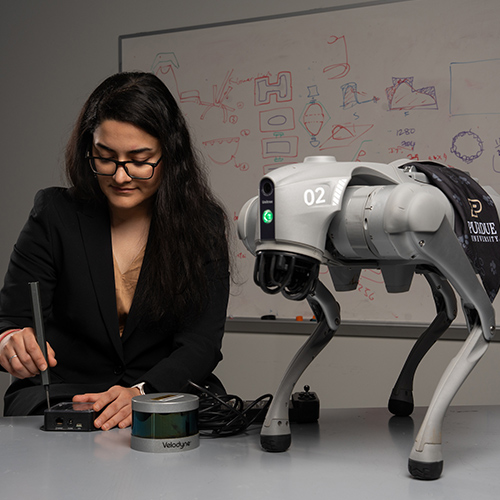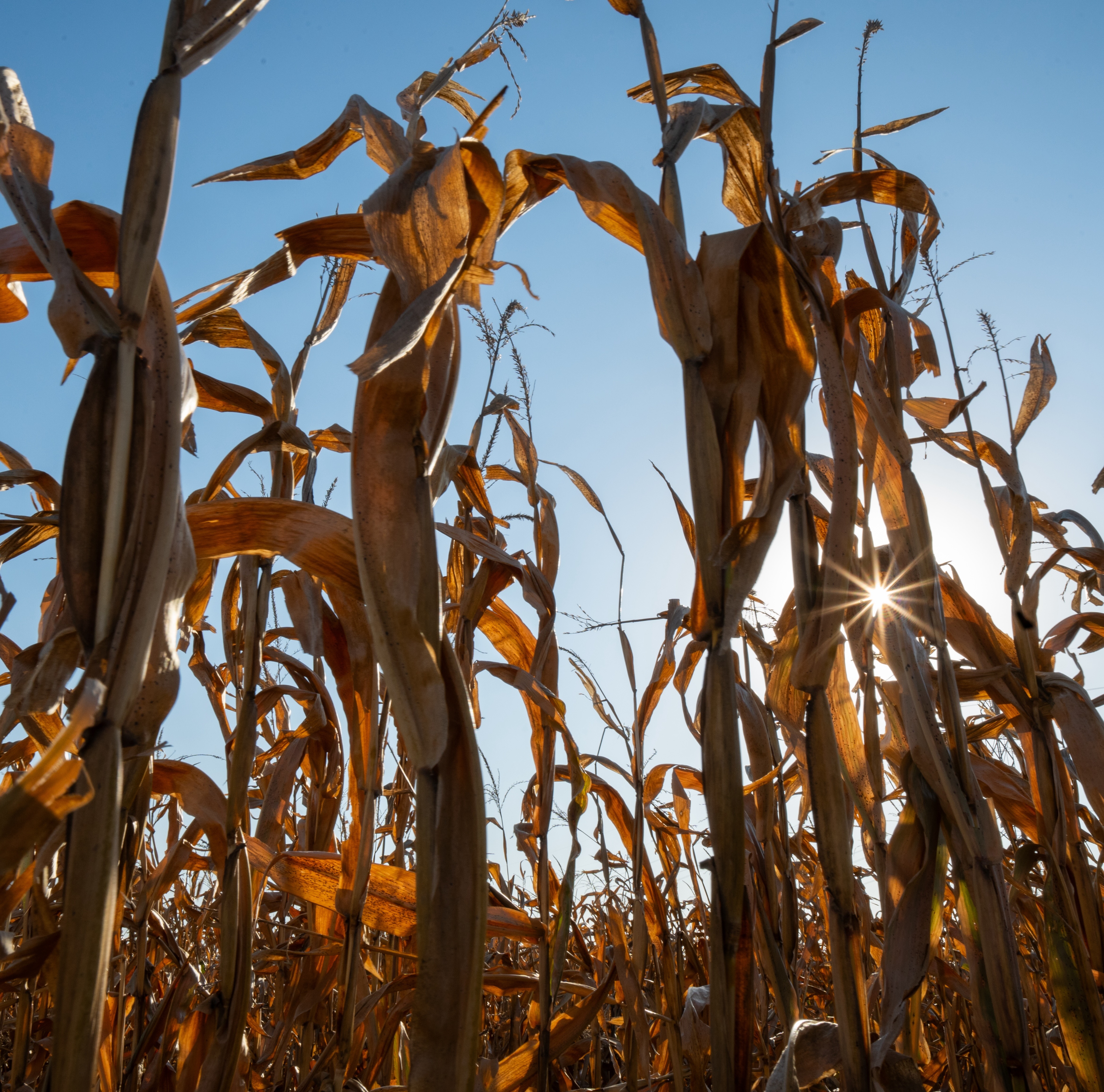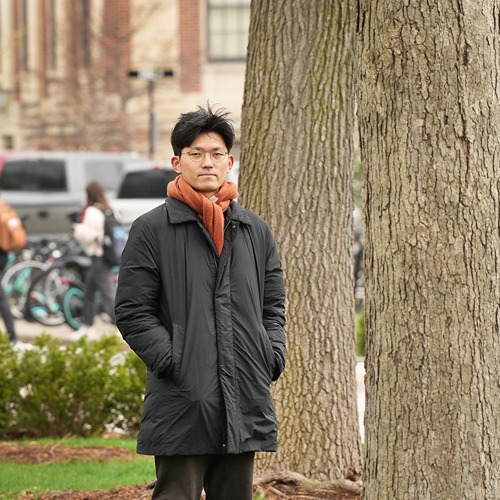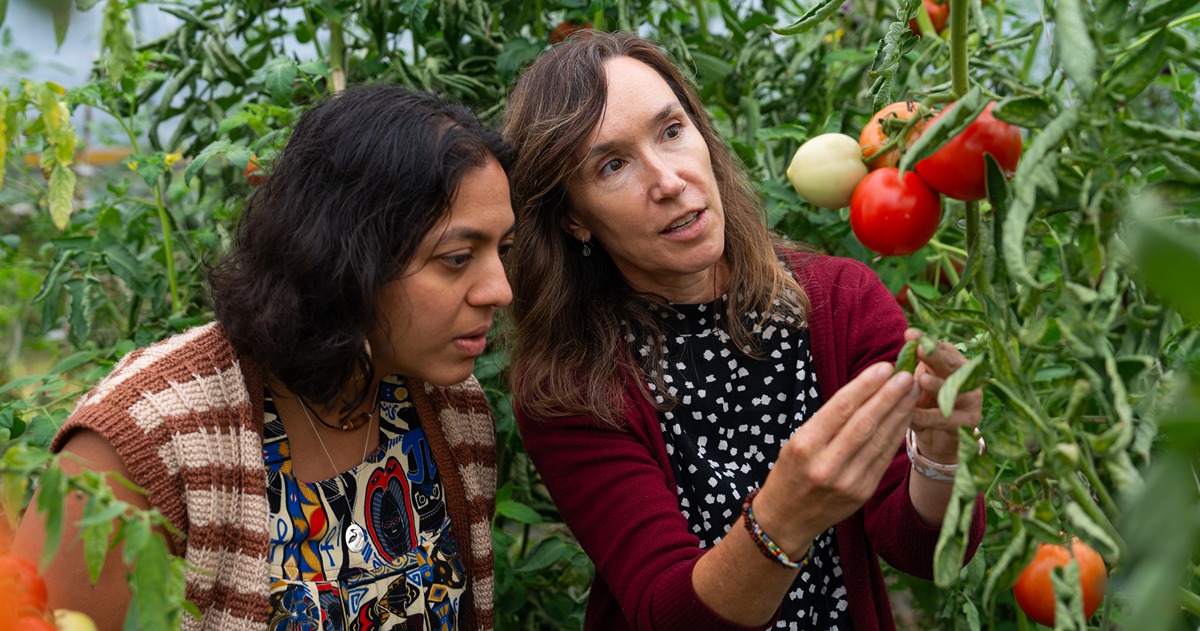National Teaching and Student Engagement award winner explores learning opportunities with students
From a distance, Elizabeth Karcher kept an interested eye on her dozen students while they explored a bustling market in Ho Chi Minh City. It was “free time,” but opportunities like these were why Karcher encouraged students to travel to Vietnam.
Karcher, an assistant professor of animal sciences, was one of two educators nationwide recently recognized by the U.S. Department of Agriculture (USDA) and the Association of Public and Land-grant Universities (APLU) with the National Teaching and Student Engagement award.
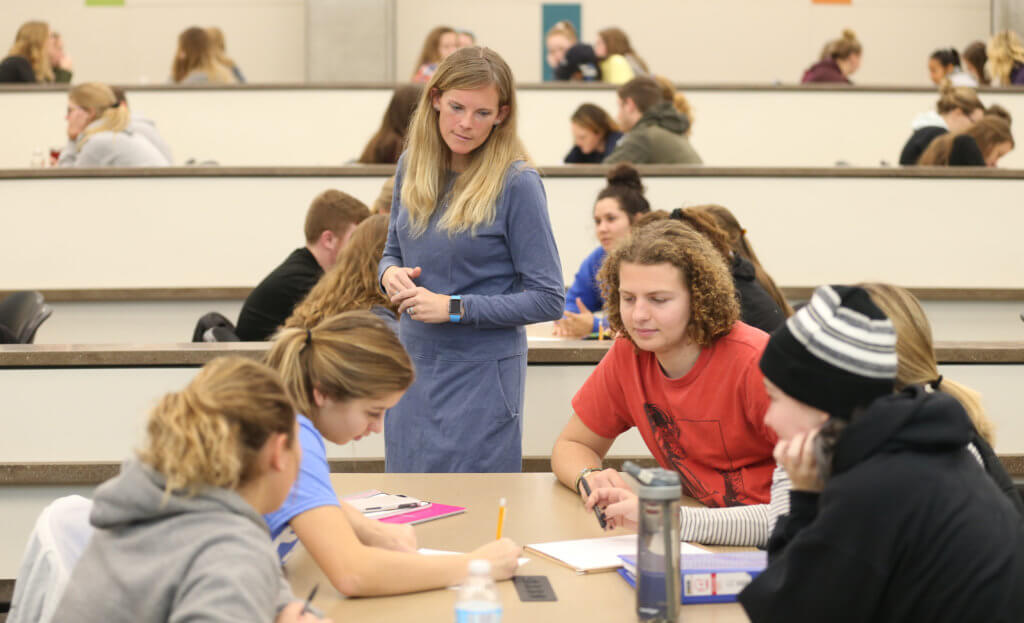
“I think it is incredible to be recognized at this level for doing what I love,” said Karcher. “At the award ceremony, I was surrounded by people who do amazing things. It was humbling to be included among them.”
“Liz exemplifies the very best among educators in our discipline,” said Alan Mathew, department head and professor of animal sciences. “Her high success as a teacher can be attributed to a fundamental trait; she truly cares about her students, and most especially their success in learning.”
This year, Karcher also received the Purdue University Exceptional Early Career Teaching Award, the Purdue College of Agriculture Richard L. Kohls Outstanding Early Career Teacher, and the Purdue PK-12 Outreach and Engagement 2019 Emerging Faculty Impact Award. As the departmental Undergraduate Programs Coordinator, she is in the final phases of heading a three-year curricular review for the department.
“I really value including students in both my research and teaching programs,” Karcher said. “When I first began teaching, I was very interested in better understanding the pedagogy behind the instructional strategies I was selecting in my classroom. At Purdue, my research in learning focuses on the development of innovative experiential learning platforms to enhance learning and develop intercultural competencies in undergraduate animal sciences students.”
“Liz is a very dedicated, tireless, caring, and personable teacher and mentor,” Mathew said. “She is passionate not only about sharing the knowledge of her discipline with our students but also about their development of leadership and career skills.”
Karcher has taught over 1,900 students across 46 course offerings since 2008. Her research program largely focuses on K-12 and first-year students, as well as new students with limited agricultural backgrounds.
“The majority of our first-year students hope to practice small animal medicine after graduation,” said Karcher. “They come to Purdue with this goal, but they are not always aware of other career opportunities in animal sciences.”
Karcher relates to such students because she was once just like them. Karcher grew up without an agricultural background, but she wanted to work in a lab to pave her way to veterinary school.
“That was my plan until I started working in a dairy nutrition lab during my undergraduate program at Penn State University. My undergraduate research experience opened my eyes to graduate school and the opportunities beyond just veterinary medicine.”
Now, Karcher encourages students to take advantage of the opportunities she provides so they can gain new interests and experience.
“Challenging my students with experiences is one of my key goals. Experiences both in and out of the classroom can expose students to potential careers and may help them develop interest in an area they did not previously consider.”
Exploring Animal Production in Italy: Study Abroad
“One way to challenge students outside of the classroom is through study abroad programming. I currently serve as faculty leader for two programs. In one, students study animal production in Italy for 10 days over the summer. When the fall semester starts, the students are part of the Learning Community. Study abroad programming allows me to develop relationships with my students. We share a common experience and this often encourages more rich discussion during the fall on-campus portion of the course.”
“The Learning Community portion of the course in the fall semester allows us to continue discussing animal production and intercultural learning but also gives us the opportunity to come together for more social activities. This semester, we visited a nursing home where students talked with residents about their experiences in Italy and we did glassblowing during another event. It’s important to build both professional and personal relationships with students so they feel comfortable asking questions and engaging in classroom discussions.”
In Karcher’s other program, Extension educators accompany and mentor students as they study sustainable agriculture in Vietnam.
Food Security and Environmental Challenges in Vietnam: Study Abroad
“I’m always looking for teachable moments on our trips,” said Karcher. “One of the goals for my study abroad programming is to design activities to further develop students’ intercultural competencies. Whether it’s a gondola ride in Italy or the students shopping in a market in Ho Chi Minh City, these experiences provide platforms for discussion about cultural differences and similarities.”
“We are a global society. In order to be successful and ready for the workforce, our graduates must develop skills to communicate and understand diverse audiences.”
Photos by Tom Campbell


